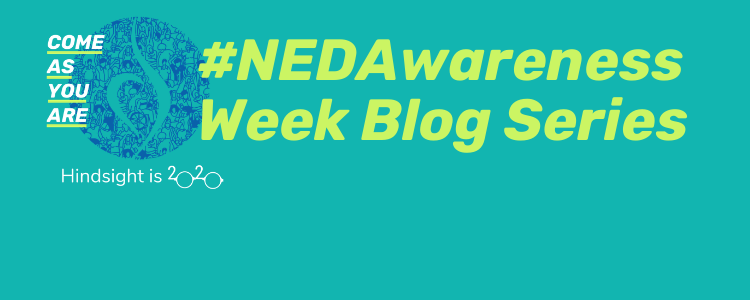“Every Woman” of My Era
I teach teachers about the body image challenges children face in our culture, giving them tools to address the epidemic of body image problems kids suffer today. Many of these problems are attributed to the recent explosion of visual social media, like Instagram and Snapchat. In the seven years I’ve been researching, speaking, and writing about today’s body image issues, I’ve switched my focus from teaching kids how to cope with this culture, to actively changing the culture to accept all human shapes and sizes.
Editor’s note: CW for behaviors mentioned
I teach teachers about the body image challenges children face in our culture, giving them tools to address the epidemic of body image problems kids suffer today. Many of these problems are attributed to the recent explosion of visual social media, like Instagram and Snapchat. In the seven years I’ve been researching, speaking, and writing about today’s body image issues, I’ve switched my focus from teaching kids how to cope with this culture, to actively changing the culture to accept all human shapes and sizes.
As an unexpected bonus, my journey into culture change has actually helped heal my own relationship with food and my body. I recommend becoming an activist for body equality for all the right reasons, having to do with human dignity and respect for all people. But I believe that the work of fat activism can actually repair our current body-obsessed culture person-by-person.
My story: “I’m every woman”
Like many people who work with eating disorders or disordered eating, I was drawn to the topic because of my own body image issues. I have spent too much of my mindshare on food, body, and eating for decades. While I was growing up in the 70s, the world around me was ratcheting up the pressure on women to conform to an increasingly thin beauty ideal. I wanted to look like the women I saw every night in my living room on TV shows like Charlie’s Angels and Three’s Company. I teach kids that every age has its own, narrow “appearance ideal” that we all clearly recognize from the media of the day.
I am “every woman” of my era. I didn’t have an eating disorder diagnosis, but my eating and behavior were certainly disordered. I spent four decades counting calories and then carbs, in the hopes of shrinking my body to end up in the vicinity of Farrah Fawcett or Jaclyn Smith. Those of us trying to fit into an appearance ideal are part of the “dieting majority,” the 50-70% of women who will restrict food this year to make themselves smaller. My bathroom scale set the day’s emotional tone for me for 40 years. This body dissatisfaction, food restriction, and fear of gaining weight are considered “normal” in today’s culture.
At some point in mid-life, I just couldn’t do it anymore. I couldn’t spend my precious time worrying about what every meal was doing to my body. So, I found Intuitive Eating, Health At Every Size®, body positivity, body acceptance, and lots of theory for “loving myself” out of my decades-old habitual, thought patterns. My library swelled with books. But, just exactly how was all that information supposed to replace my 40-year-old beliefs? I made some headway. I threw away my bathroom scale and became re-acquainted with my body cues. But, although I wouldn’t admit it on my HAES® or FoodPsych chat groups, I would have still preferred to wear a smaller size . . . that is until I met Virgie Tovar.
Virgie and activism
I didn’t actually meet Virgie face-to-face. I heard her speak at one of the first Body Positive trainings I attended in Berkeley, California. In her presentation, she included a picture of herself as a 4-year old and explained that this was the last time in her life that she felt unashamed of her body. Soon after that photo was taken, the world around her told her that her body was wrong. That picture of 4-year-old Virgie shifted something in me. I thought if the world couldn’t accept the body of a young child, there was something very wrong with the world. No one should be ashamed of how they were made. All bodies had to be okay.
Dignity and respect are human rights, not contingent on appearance, health, or personal habits. When I started to hear more fat voices like Lindy West and Roxanne Gay describe their experiences in our fat-phobic culture, I got angry. I wanted to help, and I became a fat activist and ally. My job is to recognize fat discrimination in all its sneaky forms and be willing to stand up to it when I am able. I’ve seen fat discrimination in schools, at doctor’s offices, and at work. I’ve learned to argue with my dad, brother-in-law, and friends’ husbands when they comment on people’s body size. I’ve needed to push my own limitations as a conflict-avoider and a people-pleaser to do this work, but I’ve grown.
In the end, Virgie Tovar helped me more than I will ever help the cause. It wasn’t until I became a fat activist that I was able to do the rest of the work to recover from my own disordered thinking. That voice I developed to protect injustice on young Virgie’s behalf was actually the awareness I needed to recognize and use on myself to heal 40 years of feeling “not good enough” about my own body. For me, fat activism has been the route to my own body acceptance.
Recognizing judgment
It is one thing to understand the concept of judgment and another to recognize it when you see it. I tell teachers and children not to “judge” other people’s bodies, and each crowd I stand in front of nods and agrees. Not judging sounds right. But they have to recognize judgment when it is happening in order to avoid doing it! I am convinced many people don’t recognize it as judgment when they simply say, “She shouldn’t be wearing that red dress.” Much of body judgment is hidden in plain sight in our normal conversation.
On the other hand, the judgment that people in larger bodies experience every day is unmistakable. In the first episode of Hulu’s Shrill, Annie is in a coffee shop before work when she is targeted by an overzealous fitness trainer. The trainer assumes Annie is lazy and undisciplined and in need of her services. As fat activists and allies, our job is to recognize and call out these injustices when we see them in real life. And, when we look, we begin to see them everywhere! Watching that first episode of that Shrill, we see scene after scene of obvious insults playing out in Annie’s day because of her body size.
For me, once I was able to spot the fat insults when they appeared in my world, it was only a small leap for me to see when I was doing the exact same thing to myself in my head. Those of us with disordered behaviors around food can have a very active inner-critic. We are so familiar with this critic’s voice—which often mirrors society’s fat-phobic views—that even our own body judgments are hidden in plain sight. Our inner-critic judges us as lazy for not keeping our heart rate up on the bike or undisciplined because of some number on the scale or just eating peanut M&Ms. Once I became able to recognize my own inner-critic voice and name what was going on in my head, I became able to stand up to it in the same way I did as a fat ally for 4-year-old Virgie. I used my newly acquired ally-voice to protect myself. I told my inner-critic to “take a hike” or just “shut up” when it started to bother me. And it retreated.
“All bodies are okay” dissolves the appearance ideal, freeing us to be ourselves
When we actually shift our beliefs to “all bodies are okay,” like I did when I saw Virgie’s picture, and “bodies really do come in all shapes and sizes,” our own shape and size become just one of the many bodies people are born with. It is only then that the appearance ideal we have stuck in our minds, thanks to years of TV and millions of Instagram photos, actually dissolves. And, without that ideal—that has nothing to do with us—dictating what we think we should look like, we are able to just look like ourselves. And that is the exact point when we can get on to the business of spending that precious time actually living our lives.
Denise is the executive director of Be Real USA, a non-profit spreading body confidence education and legislative advocacy across the country. In 2019 and 2020, Denise presented Be Real USA’s Body Confident Schools workshop to over 400 health teachers, social workers, and school administrators in Illinois. As an advocate and ally for the rights of individuals suffering from the effects of living in our fat-phobic culture, Denise has also been instrumental in introducing legislation in Illinois aimed at keeping harmful diet products out of the hands of minors.





